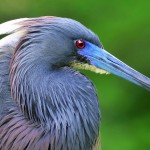David Clough, Professor of Theological Ethics, at the University of Chester talks to Sarx about his passion for animal theology, Karl Barth and his commitment to a peaceable diet.
Tell us about yourself and how you first become interested in animal theology?
I’ve been vegetarian, then mostly vegan, since I was 18. To avoid causing the unnecessary suffering and death of other animals seemed an obvious moral choice connected to my Christian faith. What surprised me over time was how few of my fellow Christians seemed to see the link. So when I began my academic career in theological ethics, animals seemed an obvious topic for me to explore, especially when few scholars at the time seemed to be interested in pursuing it. My initial plan was to write a Christian ethics of animals, but I soon realised that Christians couldn’t agree on basic questions about the place of non-human animals in God’s purposes. That’s what drove me to a theology of animals: I wanted to set out a position on where other animals belong in God’s works of creation, reconciliation, and redemption, in dialogue with key biblical and theological texts. That became On Animals volume I: Systematic Theology (T&T Clark/Bloomsbury, 2012). I’m now writing the second volume, Theological Ethics, that traces the implications of Christian belief about non-human animals for ethical questions, such as whether we should kill them for food, or use them for research or entertainment.
As someone who has an in-depth knowledge of Karl Barth, how might his theological thinking be applied to animals?
Barth is a fascinating figure, who captivated my interest as a graduate student. His writing is shot through with a sense of what it would mean to take Christian belief seriously. My first book, Ethics in Crisis: Interpreting Barth’s Ethics (Ashgate, 2005), gave an account of some of what I found exciting in his account of Christian ethics. In relation to animals there are parts of his theology that seem very unhelpful. For example, he says that the whole of creation was brought into being just to fulfil God’s covenant with humanity. That’s the ultimate in anthropocentrism: a human-centred perspective. But there are other parts of his work that suggest a real appreciation for a Christian respect for non-human animals. He says, for instance, that all life demands respect as God’s creation, and that we shouldn’t damage even plant life for no reason. Killing other animals is even more serious: it means annihilating them and we should only consider it ‘under the pressure of necessity’ (Church Dogmatics vol. III pt 4, p. 355). Since we can now recognize that it is not necessary for us to kill other animals to eat, the logic of Barth’s argument seems now to lead to the conclusion that Christians should be vegetarian.
Barth tells of how the work of Christ affirms the Father’s “Yes” to humanity. Might this “Yes” extend to all creatures?
Absolutely: there are many passages where Barth describes God’s grace as active towards all creatures. I particularly like the way he pictures human beings as coming late to join ‘creation’s choir in heaven and earth, which has never ceased its praise’ (Church Dogmatics vol. II, pt 1, p. 648). I think there are ways to deal with his tendencies towards anthropocentrism, too, which I explore in On Animals I, ch. 4. Barth himself says in the preface to one of the volumes on creation in the Church Dogmatics that it would be possible to do a Christian doctrine of creation with a wider view of creatures than he takes himself (vol. III, pt 2, Preface). I have tried to follow up on his suggestion.
What challenges does theology bring to human perceptions of themselves and other species?
Christian theology begins with the recognition that we are fundamentally creatures of God: radically dependent on God’s grace for our very existence, as well as what it takes for us to get from day to day. That means that Christians recognize a basic commonality with all the other creatures of God, with everything that God has made. This is a very different starting point to many other non-theological accounts of the world, which often start with human beings as the centre of interest and value. Christian theology can never be anthropocentric (human-centred): it is necessarily theocentric (centred on God). We worship a God who made us together with other creatures and wills the flourishing of all creatures, as the opening chapter of Genesis and the closing chapters of Job remind us (Job 38–41). Once we see things this way, our relationships with other animals look very different.
Why should the wider church be concerned with animal theology?
The Christian life should be shaped by reflecting on the answer to the question ‘What life are we called to live in response to God’s grace to us?’ Once we take seriously the fact that God wills the flourishing of other creatures alongside us, it’s clear that how we act in relation to other creatures will be part of our answer to that question. Many Christians before us have recognized that treating other animals cruelly is incompatible with Christian faith (this recent video reminds us of some of that inheritance: <https://www.youtube.com/watch?v=_Zok-8veWrY>). I don’t think we can seriously claim to be respecting the lives of fellow creatures — or their creator — if we consume the meat of animals raised in intensive conditions with no regard for the ways that they flourish. I’d like to persuade Christians that they have faith-based reasons to stop eating chicken from hens that have been raised in featureless broiler sheds, or eggs from caged hens, or pork from pigs that spend their lives in warehouses, or dairy from cows that don’t get to graze on grass. A belief in God as the creator of these creatures is incompatible with the way we are currently treating them, and the church should be in the forefront of challenging this cruelty, as it was in the past.




